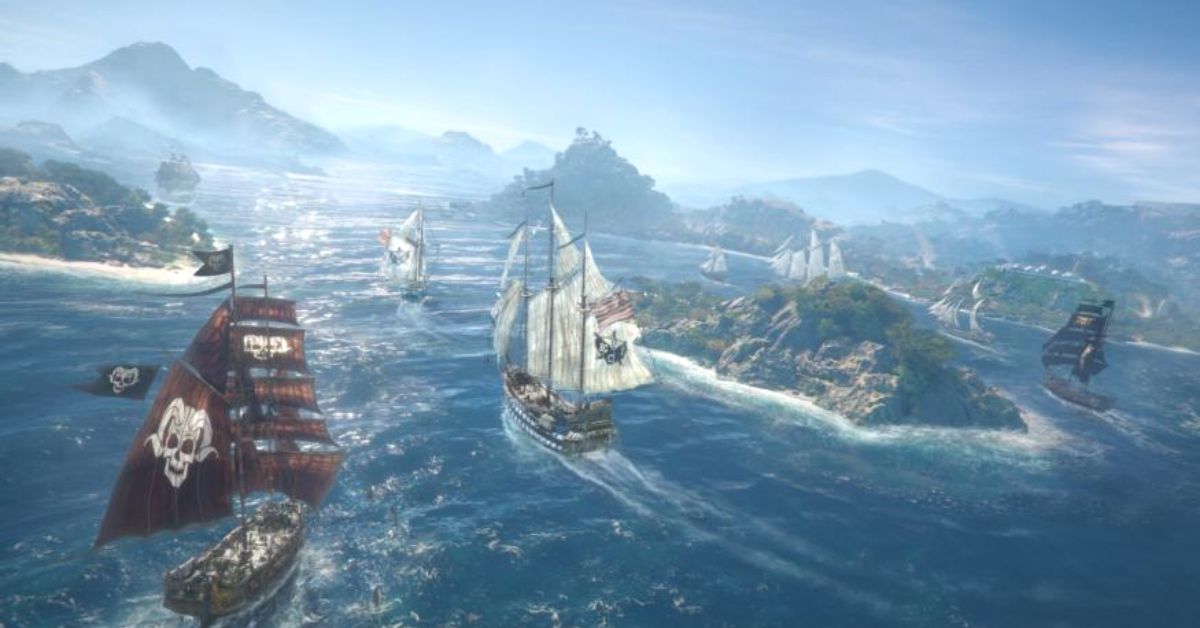On Wednesday, employees at Ubisoft asked CEO Yves Guillemot difficult questions regarding the company’s recent errors and future goals. Employees have urged “the ball is in your court” to help bring the $3 billion company back on track after the Assassin’s Creed publisher revealed further cancellations, delays, and cost-cutting measures a week prior.
Workers are being asked, “Why did you mishandle the ball for years to the point where we have to fix it for you?” review an item from a pre-submitted, corporate communication channel-viewed list of questions with the highest vote count.
It was a dig at an email Guillemot issued last week that has since gone viral. He seemed to blame the publisher’s recent missteps on lower-level employees and assign them the task of rectifying the situation.
Guillemot started the meeting by apologizing for the delay. According to attendees who were not permitted to speak to the press, Guillemot stated, “I heard your input, and I’m sorry this was taken that way.” When I said, “The ball is in your court,” I meant that I need your talent and energy more than ever to produce our lineup on time and at the desired level of quality.

Because I am part of the leadership team, I am responsible for laying the groundwork for us to succeed as a group. While some of the devs in attendance well received that explanation, others who talked with the meeting did little to assuage their concerns that management is out of touch.
The event lasted an hour and was heavy on generalities and short on specifics. CFO Frederick Duguet had previously stated the need to cut expenses and boost output. Anika Grant, the chief people officer, recently shot down a proposal for four-day work weeks and said inflationary hikes were out of the question due to the company’s financial situation.
When asked about the recent request for a strike at the Paris studio, none of the executives addressed the issue head-on. Additionally, Guillemot was evasive when asked about the possibility of layoffs. It’s not about squeezing more out of fewer resources, but about discovering new methods to approach problems everywhere in the business, Guillemot once said.
The gathering follows a dismal 2022 for the international publisher, which saw the release of no blockbuster titles due to numerous projects being either delayed, stuck in development hell, or shipped without success finding an audience.
One question submitted to the meeting with hundreds of upvotes read, “It appears that management is out of touch with games arguing that we need to adapt to a developing industry.” The question should be, “Why are we trying to follow trends instead of creating them?”
The company’s ill-fated experiment with NFTs in 2021 is one example; another is its failed alliance with Google’s bankrupt Stadia streaming service. In addition, it may be used to characterize the publisher’s recent rush to release a full slate of battle royale and hero-based shooters, as well as several free-to-play spinoffs of established properties.
Hyper Scape and Roller Champions are only two examples that have already been released but have had trouble finding an audience. The release of others, like The Division: Heartland, was announced a while ago but has yet to occur.
— Skull and Bones (@skullnbonesgame) January 12, 2023
The video game Ghost Recon: Frontline is yet another case in point. The 2021 reveal looked suspiciously like a knockoff of Call of Duty: Warzone to the untrained eye. As a result of the game’s apparent resemblance to a Call of Duty: Warzone rip-off in internal testing, Ubisoft canceled it and three other projects last summer, leaving Ghost Recon fans baffled and developers disheartened.
At today’s meeting, CEO Yves Guillemot discussed the company’s plans to put more resources into its most successful series, such as Assassin’s Creed and Far Cry, and its Tom Clancy games like Rainbow Six Siege, whose potential he likened to that of Riot Games’ Valorant. Some people perceive it as a step back from not only following trends but also doing new things.
When questioned why they didn’t go after more diverse, smaller titles like Anno 1800, senior vice president of studio operations Marie-Sophie de Waubert responded, “We need to recognize that the trends are for giant brands.”
Ubisoft has been under fire in recent years for having a repetitive formula that it uses across all of its franchises and failing to diversify its gameplay sufficiently between sequels. Guillemot, when questioned about the lack of originality, cited Far Cry 6 (Lost Between Worlds) as an example of a “high quality” game that was “not new enough.”
Skull and Bones pre-orders are getting refunded, game is no longer on sale in the PlayStation Store 🤔 #PS5
See more: https://t.co/6Bcd7kDtd9 pic.twitter.com/OxGSsqkzHH
— Hunter 🎮 (@NextGenPlayer) January 21, 2023
How Ubisoft will balance the budget requirements and production complexity of its giant blockbusters with creative risks in the future is unknown. Some of the canceled projects’ developers will now work on delivering games like Assassin’s Creed Mirage, a more compact and classic installment in the series stealth action genre.
The need to fill gaps in Ubisoft’s release timetable led to Mirage’s development from an Assassin’s Creed Valhalla add-on to a full-fledged game. It was instead delayed to the fiscal year beginning in April 2023, along with Skull & Bones and Avatar: Frontiers of Pandora.
Guillemot has recently declared that lineup and what comes after it to be the best in the company’s history; however if previous events are any indicator, things are unlikely to proceed as planned.
We trust you have learned something helpful from this article. Keep checking Gameempress.com to know all the newest news and information.
